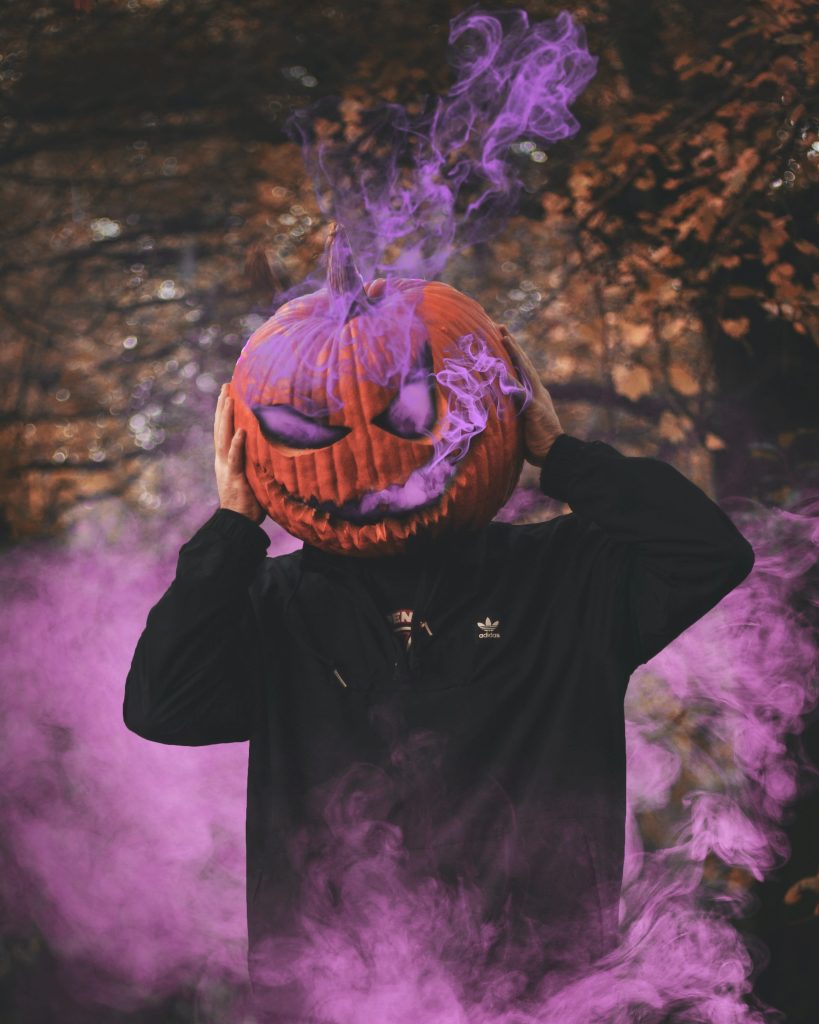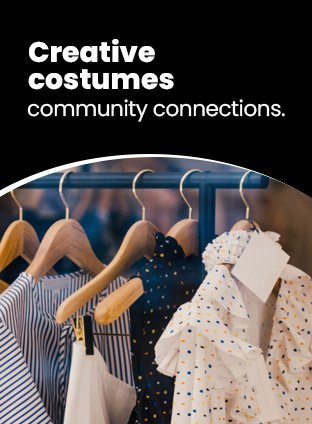Halloween is an annual holiday observed on October 31st, primarily in Western countries like the United States, Canada, and the United Kingdom. It has its roots in ancient Celtic traditions, particularly the festival of Samhain. Halloween is a blend of various cultural influences, and its modern celebration is characterized by a mix of spooky and festive elements.
Halloween is celebrated for several reasons:
Historical Origins:
Samhain marked the end of the harvest season and the beginning of winter in Celtic cultures. It was believed that on this night, the boundary between the living and the dead was blurred, allowing spirits to roam freely. People lit bonfires and wore costumes to ward off malevolent spirits.
Religious Significance:
In Christian traditions, November 1st is All Saints’ Day (or All Hallows’ Day), and October 31st is All Hallows’ Eve, which eventually became Halloween. It’s a time to remember and honor saints and departed souls.
Festive Tradition:
Over time, Halloween evolved into a fun and festive holiday. It’s a time for children and adults to dress up in costumes, go trick-or-treating, attend parties, and decorate their homes with spooky themes. It’s an opportunity for creativity and imagination.
Community and Socialization:
Halloween fosters a sense of community as neighbors come together for events like trick-or-treating, haunted houses, and parades. It’s a chance for people to connect and share in the spirit of the holiday.
Cultural Exchange:
Halloween has become a global phenomenon, with people from diverse backgrounds participating in its festivities. It’s a way for different cultures to share and appreciate each other’s traditions.
In summary,
Halloween is celebrated as a multifaceted holiday with historical, religious, and cultural significance. It has evolved into a time of creativity, community, and fun, where people embrace both the spooky and festive aspects of the season.

Welcome to Halloween,
“Prepare to be bewitched and bedazzled as we dive into the enchanting world of Halloween! With its origins shrouded in the mists of ancient traditions and its contemporary celebration characterized by an irresistible fusion of spookiness and festivity,
Halloween is a captivating holiday like no other. As the leaves turn fiery shades of orange and the crisp October air fills with whispers of the supernatural, this mystical day, celebrated on October 31st, casts its spell on millions around the globe.
From its Celtic roots in the sacred Samhain festival, where the veil between the living and the departed thins,
to its evolution into a worldwide phenomenon filled with costumes, jack-o’-lanterns, and spine-tingling stories,
Halloween weaves a tapestry of history, culture, and creativity that enthralls both young and old.
Join us on this journey through the enchanting realms of Halloween, where ghosts and goblins play, and the spirit of imagination reigns supreme.
Whether you’re a seasoned trick-or-treater or a curious newcomer, the spellbinding world of Halloween promises an unforgettable adventure into the eerie and the extraordinary!” ✨️
Why Halloween is called?
Halloween is called so because it is a contraction of “All Hallows’ Eve,” referring to the evening before
“All Hallows’ Day” or “All Saints’ Day,”
A Christian holiday observed on November 1st. It’s named because it precedes a day dedicated to honoring saints and departed souls.
Over time, “All Hallows’ Eve” evolved into “Halloween” and became associated with various traditions, including costumes, trick-or-treating, and spooky decorations.
It retains elements of its historical and religious roots while also embracing the playful and festive spirit that makes it a beloved holiday celebrated worldwide.
Why is Halloween on October 31?
Halloween is on October 31 because it has ancient Celtic origins tied to the festival of Samhain. The Celts marked the end of their year and the start of winter on this date.
They believed that on the night of October 31, the boundary between the living and the dead was blurred, allowing spirits to roam the earth.
In order to repel these spirits, they ignited bonfires and donned disguises.
When Christianity spread, November 1 became All Saints’ Day (or All Hallows’ Day), and October 31 became All Hallows’ Eve, later shortened to Halloween.
This Christian influence helped cement the date, merging the Celtic traditions with religious observances. Today, October 31 is the day when Halloween festivities and spooky celebrations take place worldwide.
What happened in the original Halloween?
The original Halloween, released in 1978 and directed by John Carpenter, is a classic horror film that laid the foundation for the slasher genre.
The story centers around Michael Myers, a disturbed young man who, as a child, murdered his sister on Halloween night. He is subsequently institutionalized but escapes 15 years later and returns to his hometown of Haddonfield, Illinois.
The majority of the film takes place on Halloween night, as Michael stalks and kills babysitters in the town. The film primarily follows Laurie Strode (played by Jamie Lee Curtis), one of the babysitters, as she becomes the target of Michael’s relentless pursuit.
What sets the original Halloween apart is its suspenseful and atmospheric approach to horror. It relies on tension-building, a memorable and haunting musical score, and the relentless pursuit of a seemingly unstoppable killer.
The film’s success led to numerous sequels and a lasting legacy in the horror genre, making Halloween an iconic and influential film in cinematic history.
The original Halloween, released in 1978 and directed by John Carpenter, is a classic horror film that laid the foundation for the slasher genre. The story centers around Michael Myers, a disturbed young man who, as a child, murdered his sister on Halloween night. He is subsequently institutionalized but escapes 15 years later and returns to his hometown of Haddonfield, Illinois.
The majority of the film takes place on Halloween night, as Michael stalks and kills babysitters in the town. The film primarily follows Laurie Strode (played by Jamie Lee Curtis), one of the babysitters, as she becomes the target of Michael’s relentless pursuit.
What sets the original Halloween apart is its suspenseful and atmospheric approach to horror. It relies on tension-building, a memorable and haunting musical score, and the relentless pursuit of a seemingly unstoppable killer.
The film’s success led to numerous sequels and a lasting legacy in the horror genre, making Halloween an iconic and influential film in cinematic history.
In conclusion,
Halloween is a multifaceted and captivating holiday celebrated primarily on October 31st. With its origins deeply rooted in ancient Celtic traditions, particularly the festival of Samhain, Halloween has evolved into a unique blend of history, culture, and creativity.
This holiday is celebrated to honor its historical significance as the boundary between the living and the dead blurs, allowing spirits to roam freely. Over time, it also acquired religious associations, with November 1st being All Saints’ Day and October 31st being All Hallows’ Eve, or Halloween.
However, the modern celebration of Halloween is characterized by its festive and imaginative spirit. People of all ages dress in costumes, engage in trick-or-treating, attend parties, and decorate their homes with spooky themes. Halloween serves as a time for communities to come together, fostering a sense of unity and camaraderie.
In a global context, Halloween has become a shared celebration, promoting cultural exchange and a deep appreciation for the eerie and the extraordinary. It remains a holiday that embraces the past while inviting everyone to join in the excitement of its present-day festivities.
FAQs About Halloween
1. What is Halloween, and when is it?
Halloween is celebrated on October 31st each year.
2. Why do people wear costumes on Halloween?
Costumes are worn for fun and to disguise themselves from wandering spirits.
3. What’s the origin of Halloween?
Halloween has ancient Celtic roots in the festival of Samhain, marking the end of harvest and a thinning of the boundary between the living and the dead.
4. Is Halloween only about spooky stuff?
No, it’s a mix of spooky and festive elements, with activities like trick-or-treating, parties, and pumpkin carving.
5. Are there cultural variations of Halloween?
Yes, Halloween is celebrated differently around the world, with unique traditions and customs in various countries.



